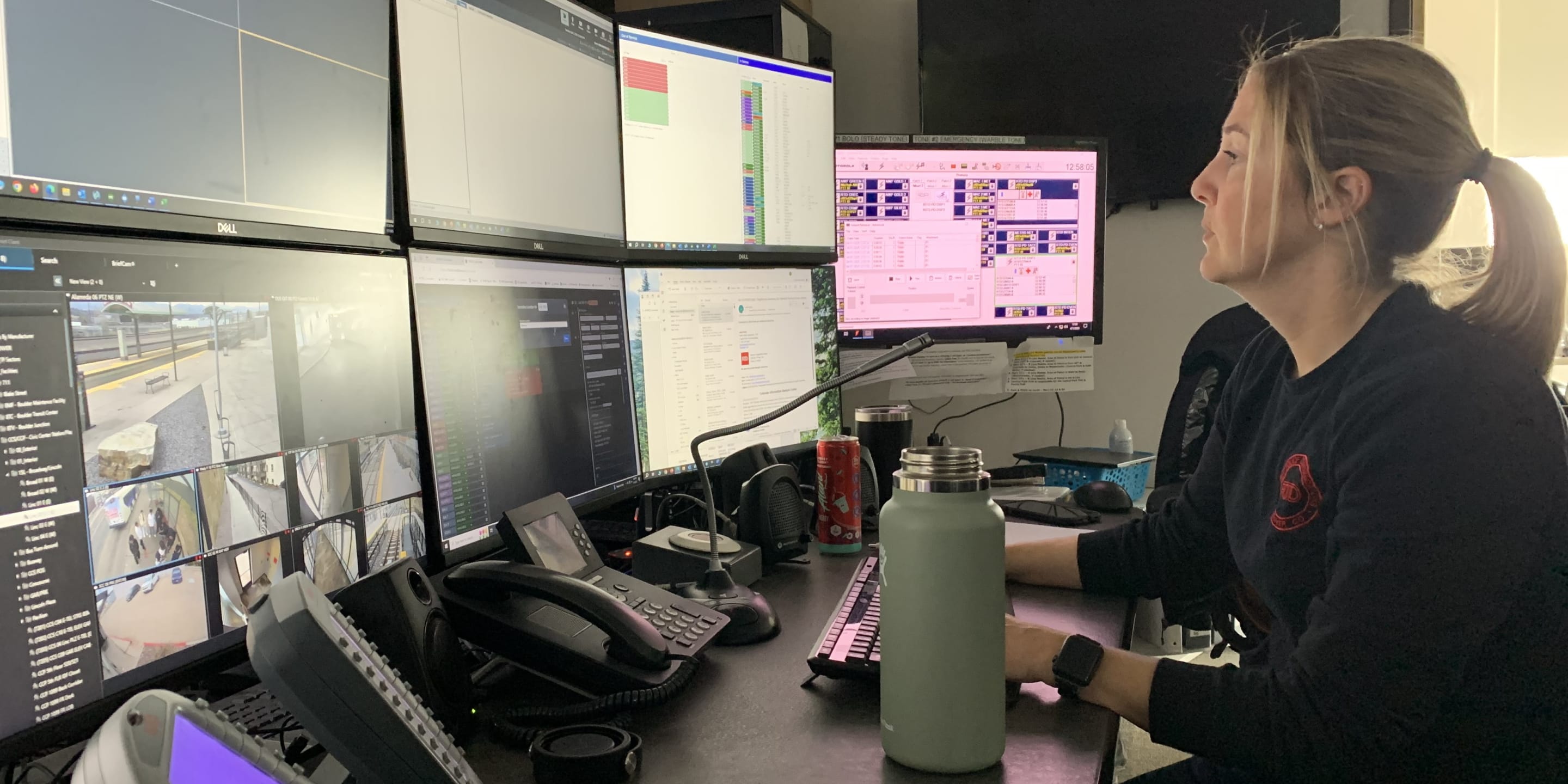
Behind the scenes of RTD's 24/7 Transit Police dispatch
When a customer or operator makes a security-related call to the agency’s Transit Watch or uses any of the 600 emergency phones at RTD stations, Transit Police dispatchers are the first responders to help. Police dispatchers work around the clock every day of the year to address calls and texts from customers, operators and RTD Transit Police (RTD-PD) officers. RTD is sharing the behind-the-scenes work of its police dispatchers as part of National Public Safety Telecommunicator Week, which kicked off on April 13.
“In this profession, police dispatchers are the first, first responders, meaning we’re there for the caller before the first responders even arrive,” RTD Manager, 911 Operations, Michelle Lawrence, who oversees RTD’s police dispatchers, said. “They’re handling an incident before anyone else gets on the scene.”
Lawrence began her career working in a police dispatch center in 2000 and joined RTD in 2016. “RTD is different than any traditional law enforcement 911 center that I’ve ever experienced given the sheer number of outside agencies the police dispatch works with. Our jurisdiction is over 2400 square miles working with 40 police departments in addition to our own Transit Police. We don’t directly receive 911 calls but we’re still answering emergency calls,” Lawrence said.
In 2024, RTD's police dispatchers fielded 102,446 combined calls, texts and radio communications that came into the dispatch center. Police dispatchers categorize each outreach as one of 100 call types to send the appropriate resources to a site. Call types cover a broad range of reports including an abandoned vehicle, elevator outage, found property, fare sweeps, medical issues or be customer service-or security-focused. Of the over 102,000 calls into the police dispatch center last year, RTD logged approximately 43,000 as security related. These included reports of graffiti, drug activity, noise complaints, and other personal safety concerns.
Wednesday is the peak day calls come into RTD’s police dispatch center, followed by Tuesday, with the peak call time being 6 a.m. likely due to increased commuter travel by transit. Most calls that come into the dispatch center are from RTD Transit Police (RTD-PD) officers who are patrolling and making observations across the district on vehicles, stations and other RTD property. The agency sees this as clear evidence that growing its police force and increasing patrols is an effective tactic to improve safety.
RTD police dispatchers are skilled employees who complete two certifications and undergo at least 36 hours of continuing education each year. The Public Safety Telecommunicator class lasts six weeks followed by a second four-week Law Enforcement Communications class to become certified. Each class is administered through the Association of Public Safety Communications Officials. All police dispatchers learn how to deescalate a variety of situations prior to officers arriving on site.
A day in the life of a police dispatcher presents continual opportunities to problem solve and make a positive impact.
“I love dispatching. It’s ever changing,” began RTD Police Dispatcher Tammy VanDrake. “It’s like a puzzle; you’re trying to fit pieces together, make your units – security, police – fit together with pieces from different places and making them work. That’s what I enjoy most.”
RTD Police Dispatcher Lane Hines added, “I like knowing that what I do matters and that my work has a direct impact on the real world. I work with a great team. This is quite literally the best job I’ve ever had. It’s never the same day twice.”